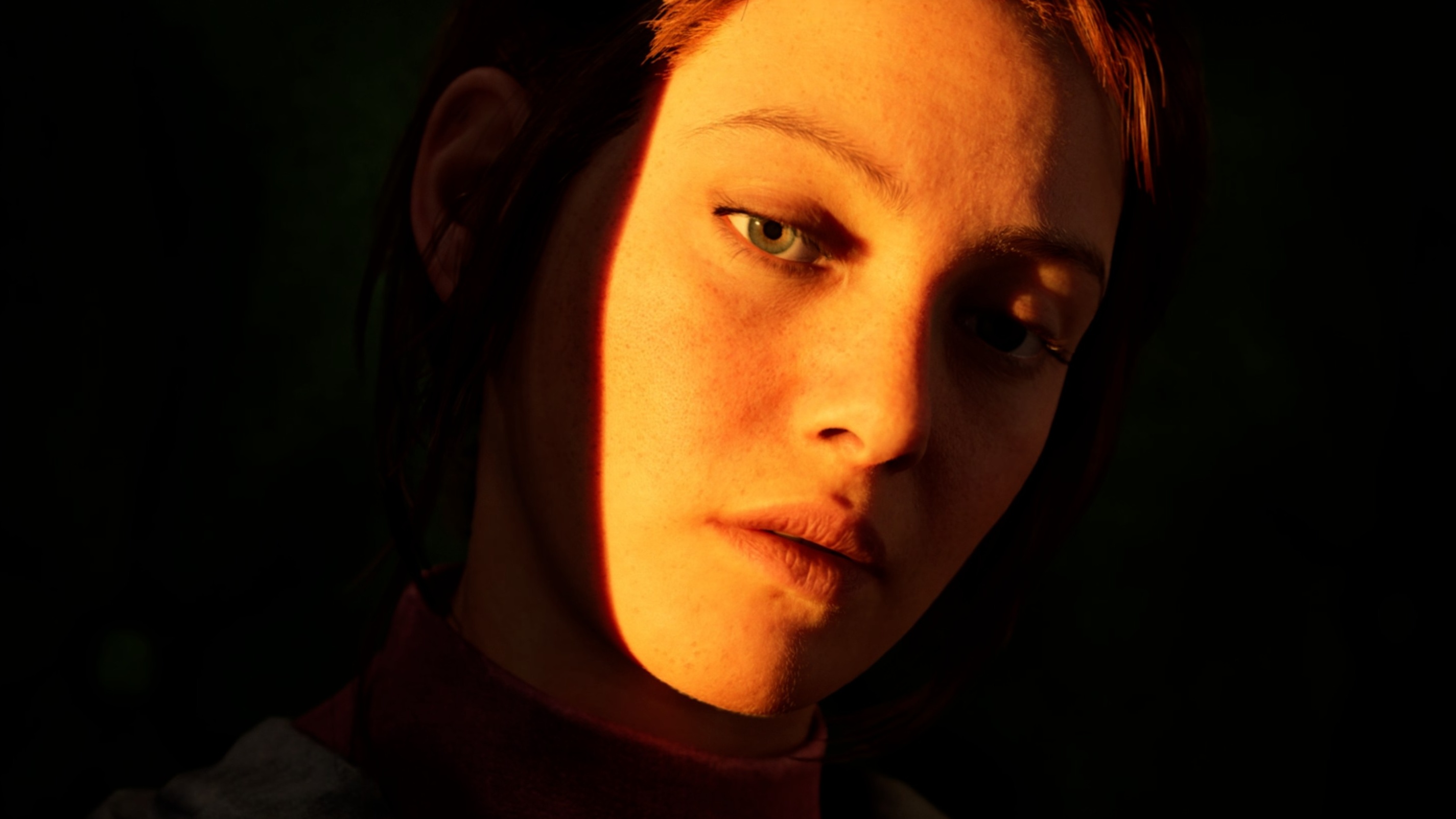Can I play Baldur's Gate 3 on a Steam Deck?
But maybe the real question is: should you play the year's best RPG on Valve's handheld gaming PC?
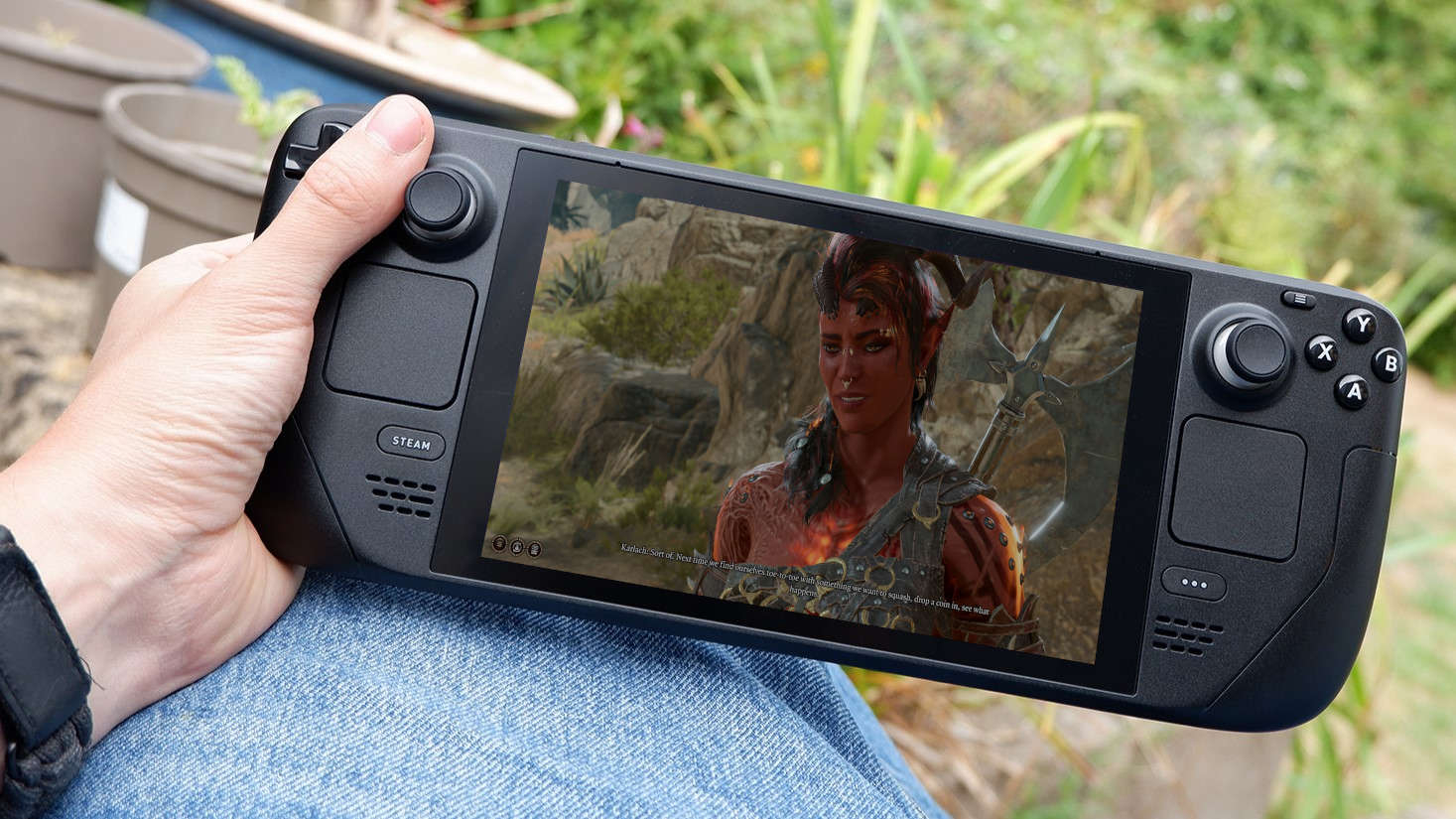
I get it, you just don't want to have to stop playing Baldur's Gate 3 just because you need to leave the house. So, why not take it with you? That's the joy of a handheld gaming PC such as the Valve Steam Deck; a wee PC that means you're not tethered to a desk just to immerse yourself in the Forgotten Realms.
But will Larian's ode to D&D work on the Steam Deck, and should you consider playing the game that way?
I've dug into the final release build of Baldur's Gate 3 to see what's changed from the early access version, and what you have to do in order to get the game playing nicely with Valve's handheld gaming PC.
As of August 4, Baldur's Gate 3 is now Steam Deck Verified, and it's very easy to get up and running.
How to run Baldur's Gate 3 on Steam Deck
Can I run Baldur's Gate 3 on a Steam Deck?
The quick answer is a resounding, yes, you can play Baldur's Gate 3 on your Steam Deck! But you will probably need to do a little tweaking before actually getting the game running.
The first thing to note is the Larian Launcher is a bit of an anomaly when you run it from SteamOS, because unlike on a Windows PC the game no longer brings up the Larian Launcher when you start the game. Normally you'd use that launcher to choose between DX11 or Vulkan APIs, but based on our testing you don't actually want to run the game with Vulkan as it has severe graphical issues on SteamOS, so I would recommend the default DX11 implementation anyway.
Up until launch day Baldur's Gate 3 required a specific version of Proton, but after an update on August 5 BG3 should be working on the Steam Deck's default settings and you shouldn't need to make any of the below tweaks.
If you do run into an issue, though, here's how you set a specific Proton version.
Hit the cog icon on the far right of the page, go into Properties and down onto the Compatibility tab. Here you need to check the box to 'Force the use of a specific Steam Play compatibility tool'. This will then bring up a drop down box and you will need to select either Proton 8.0-3 or Proton Experimental.
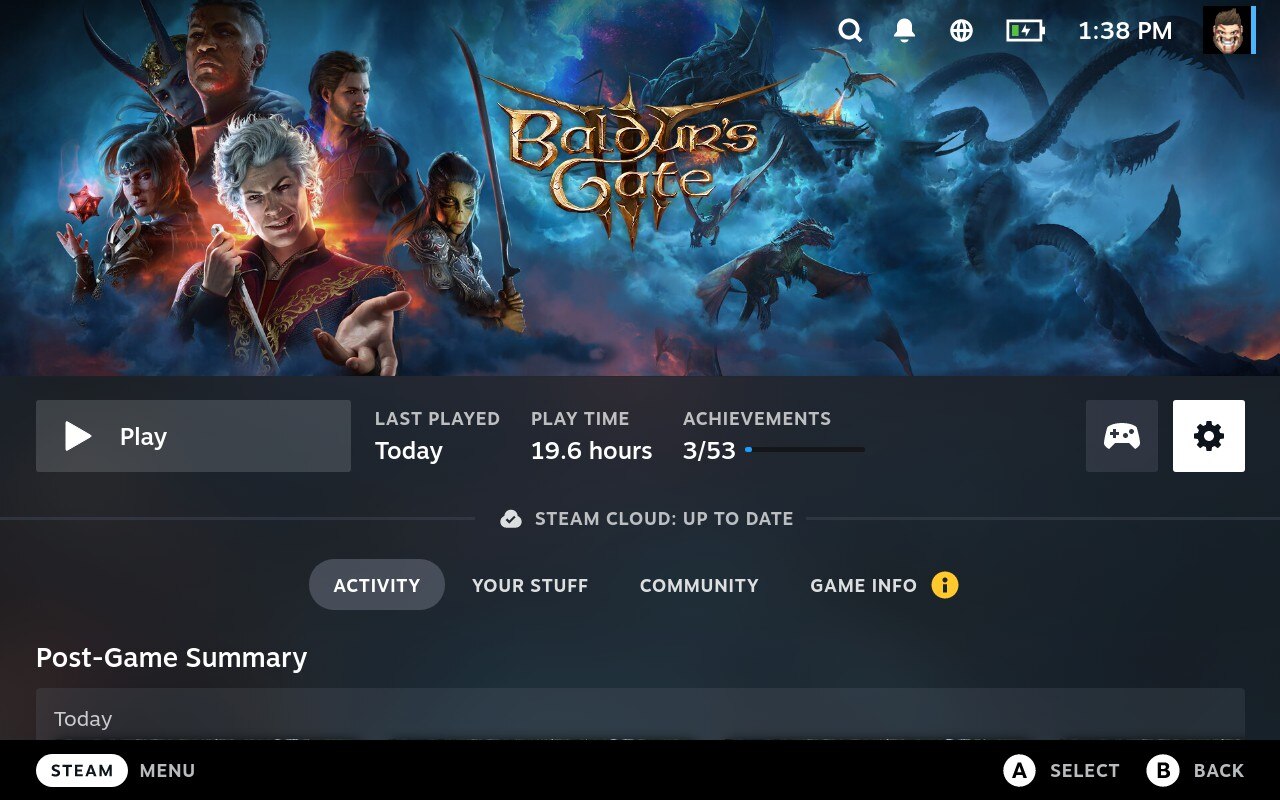
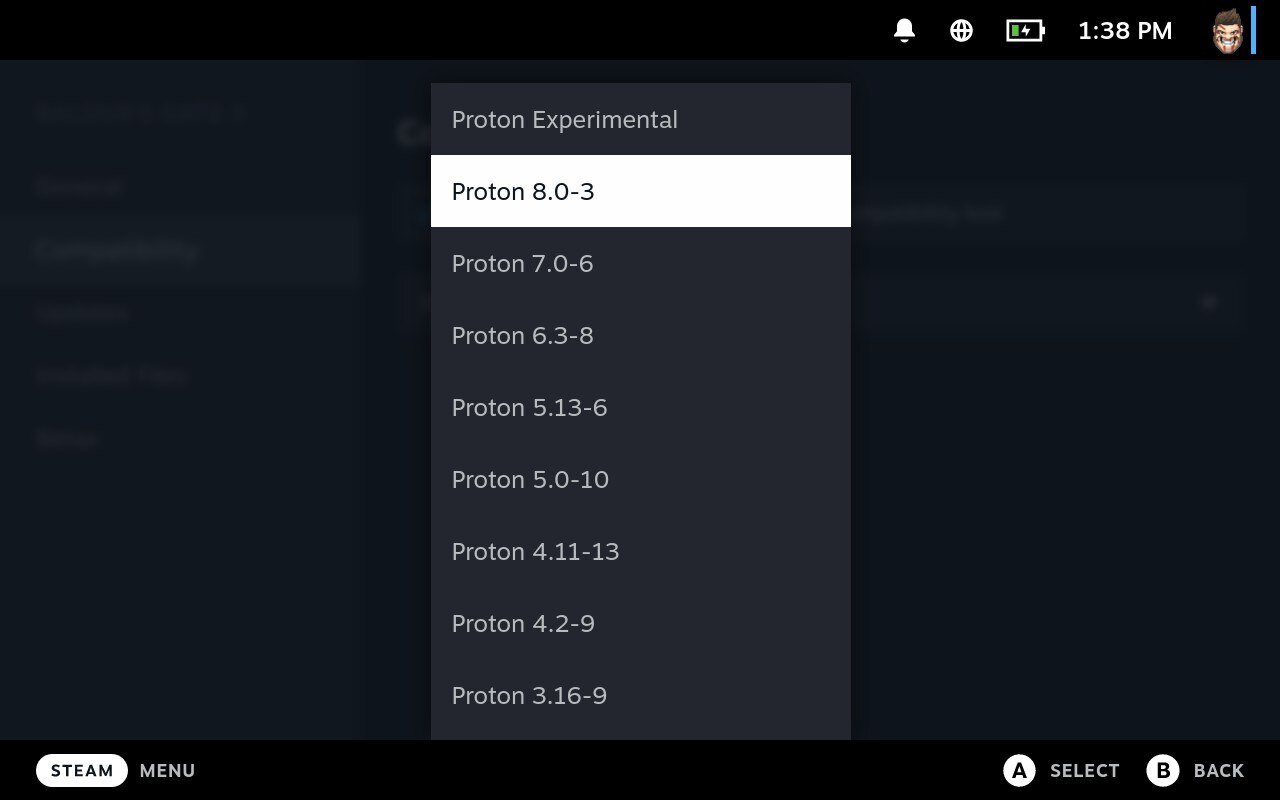
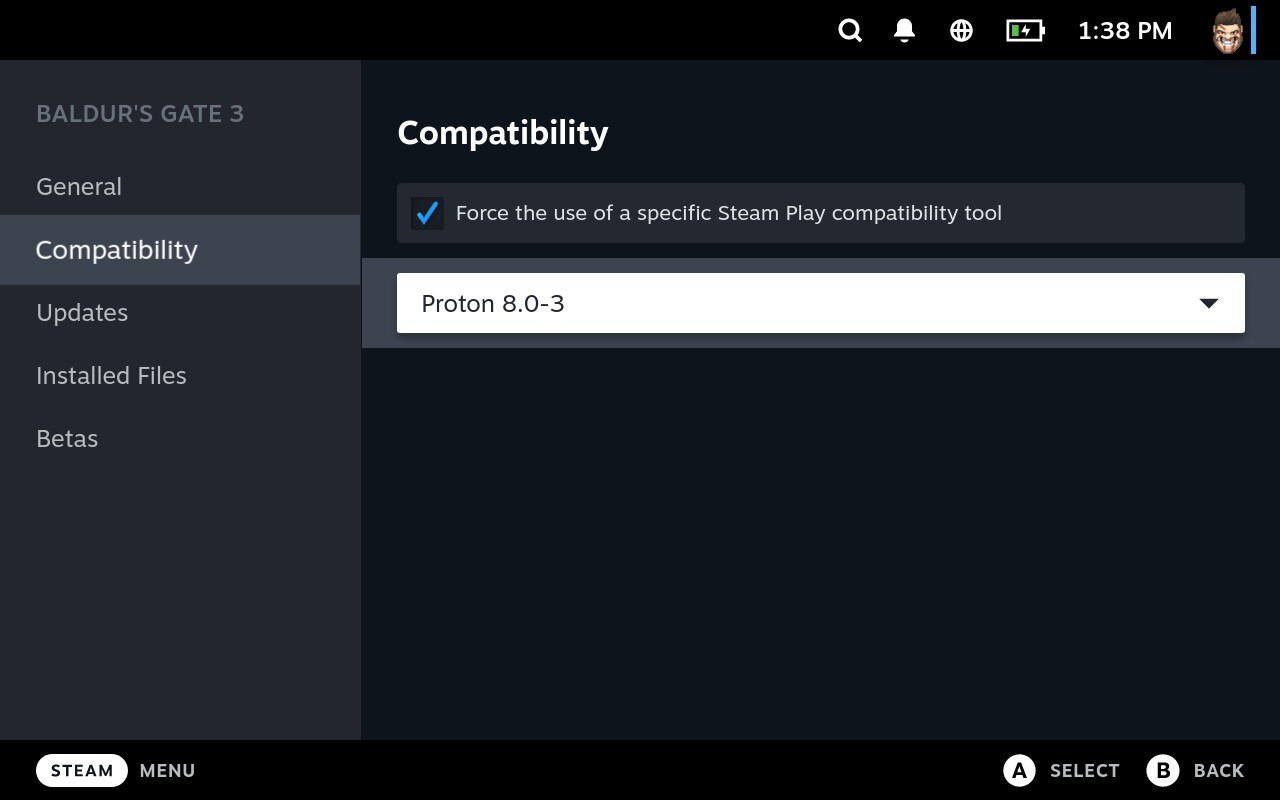
That will then allow you to boot either into the game or the launcher. But seeing as we just want to use the DX11 executable, I would suggest killing the launcher altogether so it won't even pop up without a network connection.
Skip the Larian Launcher
How to skip the Baldur's Gate 3 launcher
Again, you shouldn't need to do this after the Steam Deck's August 5 update, but if you're having any issues, these are the steps to follow.
You can do this back in the Properties section of the game's page in Steam. On the General tab at the top you need to scroll down to the bottom of that page til you hit the Launch options. Enter '--skip-launcher' into the box without the quotation marks and you'll never see the Larian Launcher again and it will default to DX11.
Phew.
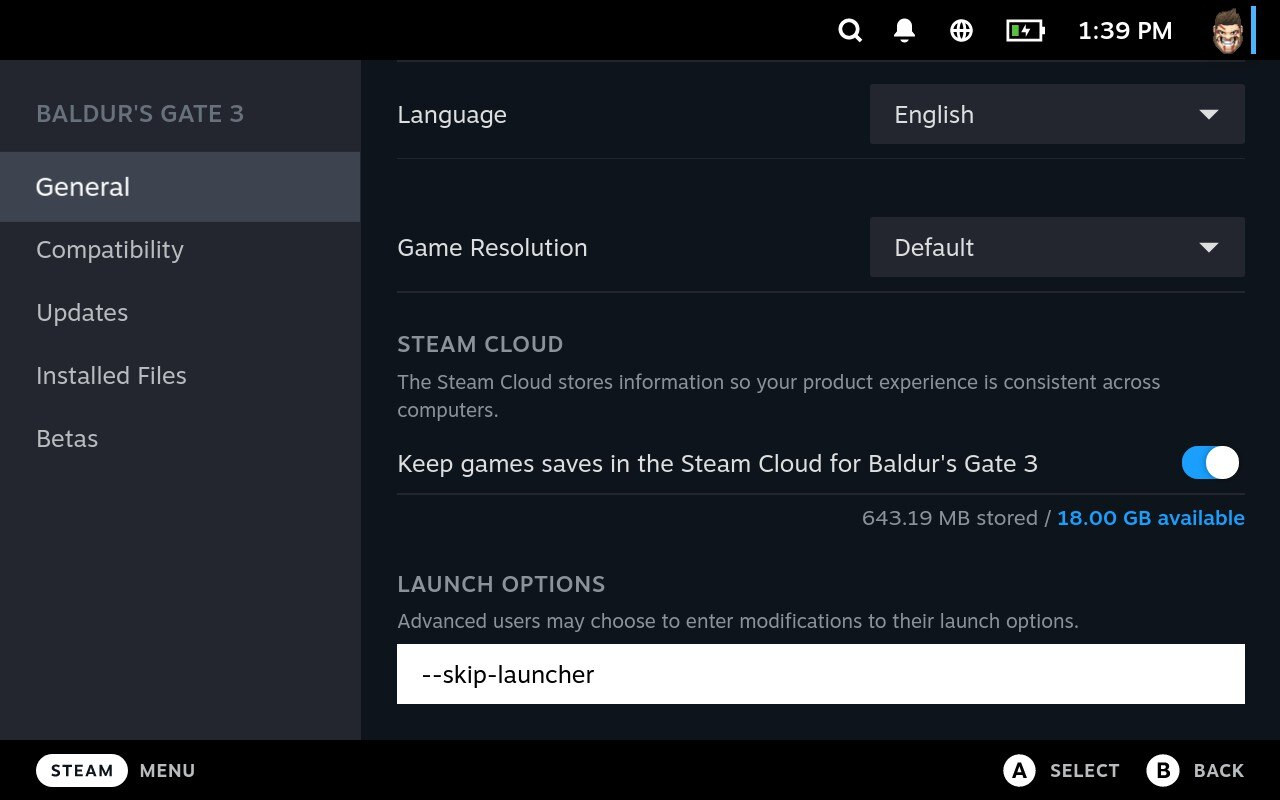
Best settings for Baldur's Gate 3 on Steam Deck
What are the best Steam Deck settings for Baldur's Gate 3?
In terms of frame rate, Baldur's Gate 3 actually runs pretty well on the Steam Deck's relatively low-spec hardware. Hitting a solid 30 fps is no problem without having to sacrifice too many of the graphical settings.
I would suggest the following:
✅Frame rate cap: On
✅Maximum frame rate: 30
✅Overall preset: Medium
✅Shadow quality: Low
✅Cloud quality: Low
✅Fog quality: Low
✅FSR 1.0: Ultra Quality
This will allow you to get a relatively reliable 30 fps without overly taxing the battery, and that will get you around 1 hour 45 minutes of game time out of a fully charged Steam Deck.
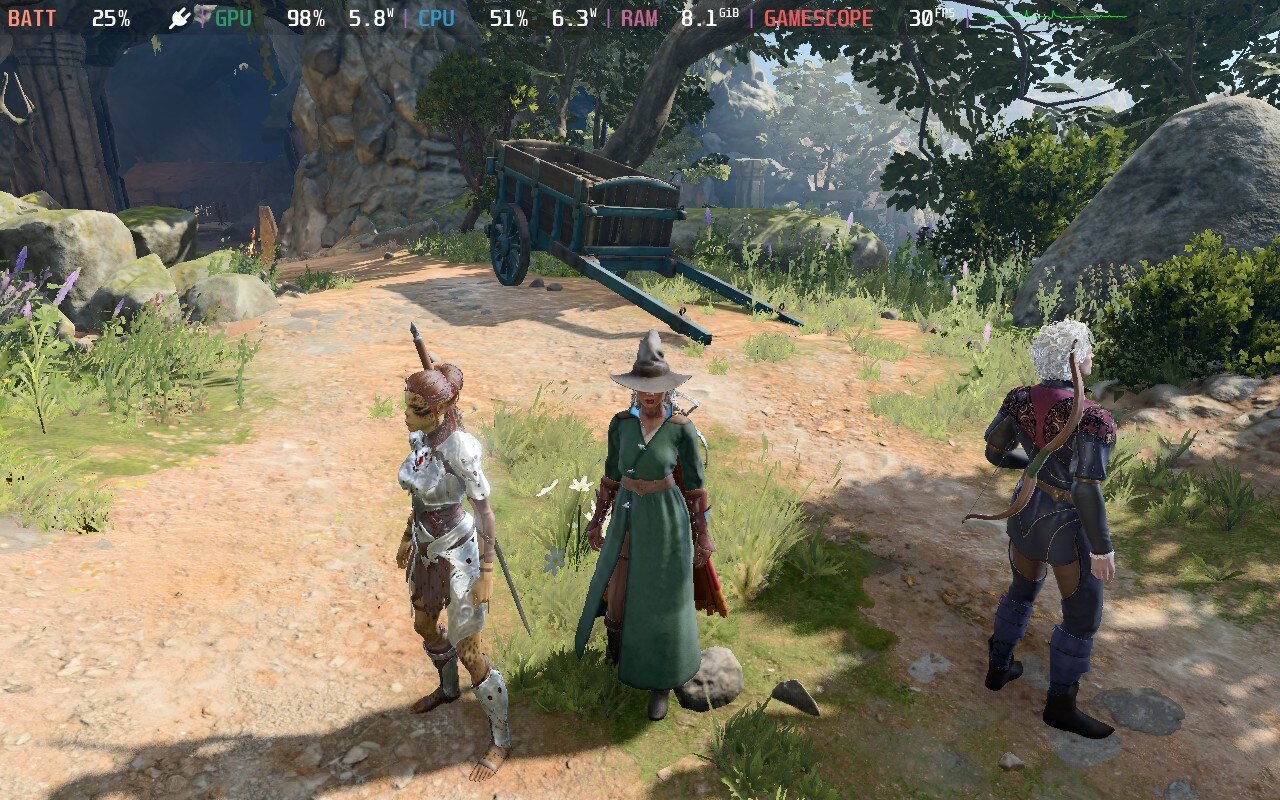
Native resolution
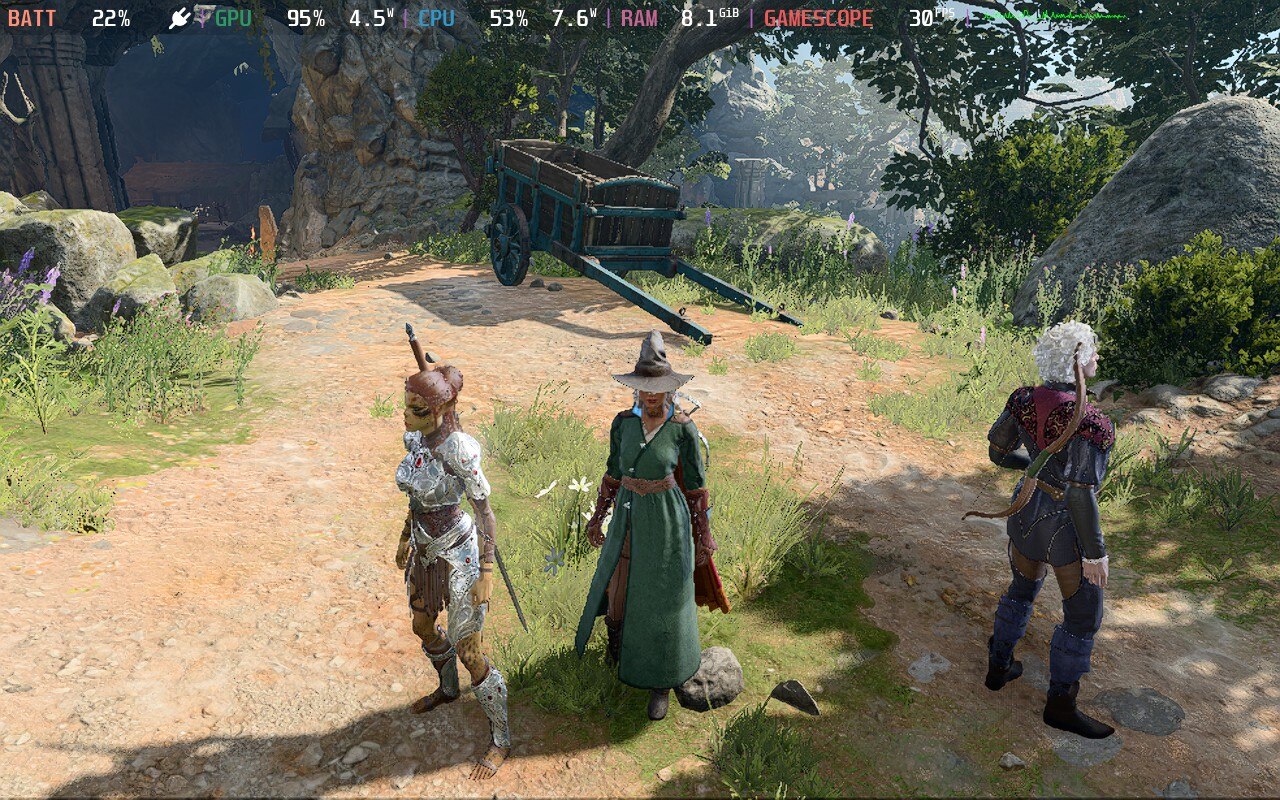
FSR Ultra Quality
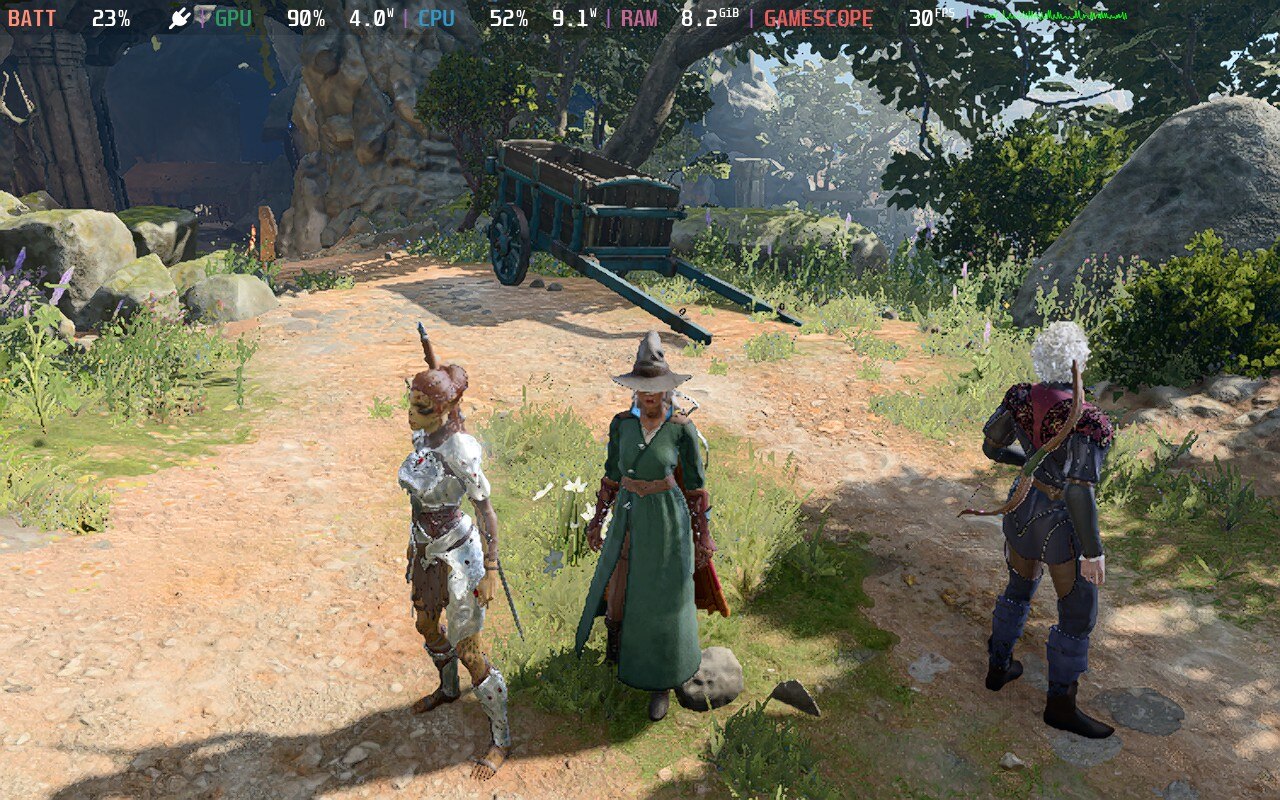
FSR Balanced
The problem is that FSR isn't the best upscaling method even within AMD's pantheon of features, and it does mean a loss of image fidelity. If you can cope with occasional drops down to 25 fps or so, then I would recommend Ultra Quality over the plain Quality setting—it makes the game look so much cleaner on the Steam Deck's low res screen.
Anything below Ultra Quality introduces too many jaggies and crawlies to the image otherwise. It is worth noting, however, that when it's all kicking off in a big battle, with lots of whizzy effects flying around the screen, that frame rate may well dip into the teens.
Keep up to date with the most important stories and the best deals, as picked by the PC Gamer team.
But should you play it on a Steam Deck?
Should I play Baldur's Gate 3 on the Steam Deck?
For me, this is the real question, because honestly I've been going back and forth based on my experience. Despite the performance limitations, though, I think I could happily play the entire game through on the Steam Deck… so long as I have FSR enabled at nothing below the top Ultra Quality setting. Anything else just harms the look of this otherwise beautiful game far too much for my delicate sensibilities.
Because it's not some twitch shooter, I can cope with the lower frame rate over the crawlies and jaggies the AMD upscaled version of Baldur's Gate 3 introduces on the Steam Deck.
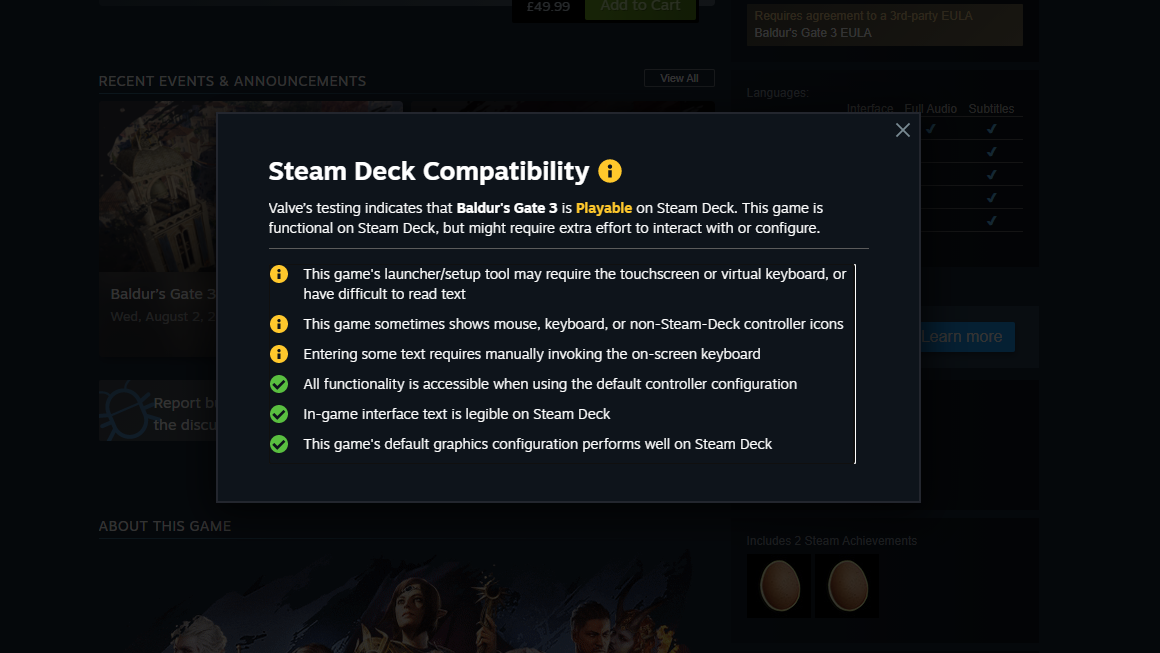
The reason Baldur's Gate 3 has that advisory rating for Steam Deck compatibility is that there are a couple of instances where you will need the touchscreen and/or virtual keyboard, most especially when it comes to the launcher. We're skipping that anyway, so those issues aren't something I'm concerned about at all.
I'm hugely impressed with Larian's controller implementation and will happily play the whole game like that, basically running it like a third-person Mass Effect-style RPG, so the controls aren't my concern, either.
It's just that FSR implementation. With such a low input resolution for that 800p screen the game looks pretty ropey when upscaled using FSR below the top setting. That's largely because the first generation of AMD's FidelityFX Super Resolution has far greater impact on visual fidelity than FSR 2.0. Hopefully Larian will implement the newer tech after launch, because theoretically it should be relatively straightforward to add when the game already supports DLSS.
I can happily run the game at a pretty solid 30 fps with the settings I outline above, and with FSR on that means I can squeeze around 1 hour and 45 minutes of Baldur's Gate 3 game time out of the Deck, but it's far from an ideal experience.
And there's also the issue of the fan noise of the Deck. You are going to need to play this with some headphones or earbuds on.
That's not to say you shouldn't play Baldur's Gate 3 on a handheld gaming PC, however. I've been running the game on the AOKZOE A1 Pro, with AMD's Ryzen 7 7840U—the same chip in most of the new handhelds coming onto the market—and loving it. The 1920 x 1200 screen plays a lot nicer with FSR 1.0 and the higher performance Radeon 780M integrated GPU means I can run the game at High settings with FSR set to Quality and still get better than 30 fps most of the time.

Dave has been gaming since the days of Zaxxon and Lady Bug on the Colecovision, and code books for the Commodore Vic 20 (Death Race 2000!). He built his first gaming PC at the tender age of 16, and finally finished bug-fixing the Cyrix-based system around a year later. When he dropped it out of the window. He first started writing for Official PlayStation Magazine and Xbox World many decades ago, then moved onto PC Format full-time, then PC Gamer, TechRadar, and T3 among others. Now he's back, writing about the nightmarish graphics card market, CPUs with more cores than sense, gaming laptops hotter than the sun, and SSDs more capacious than a Cybertruck.

